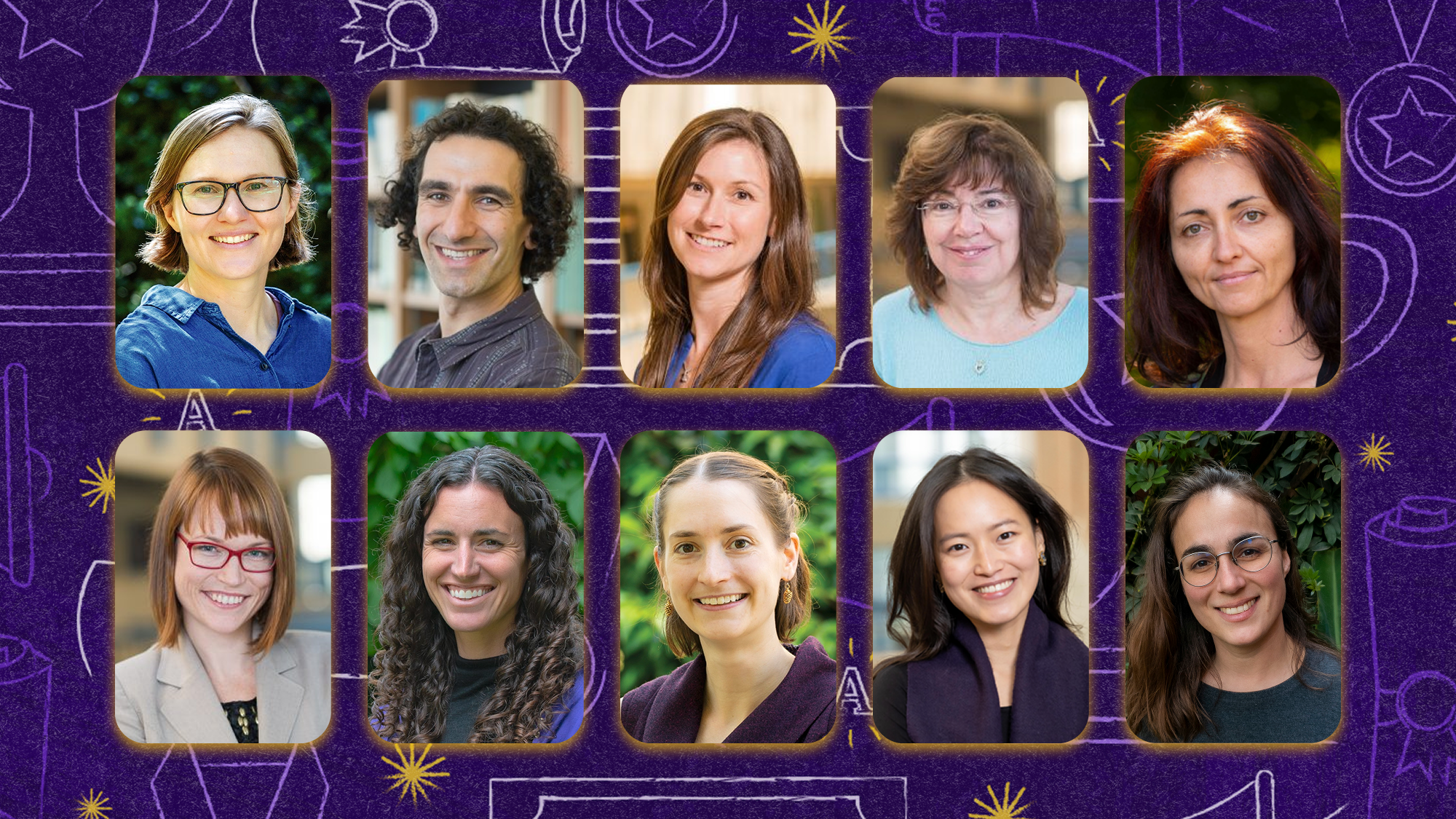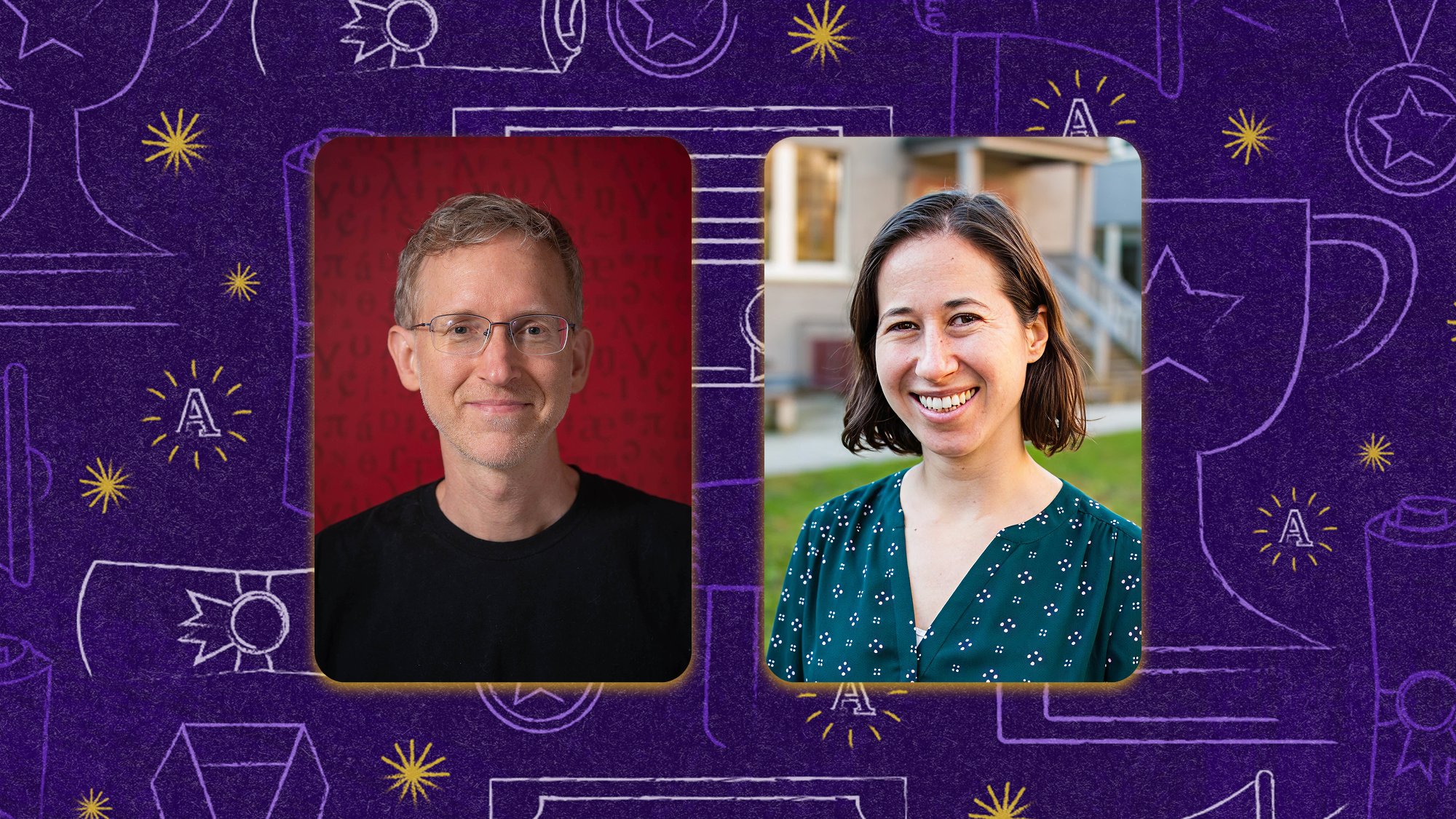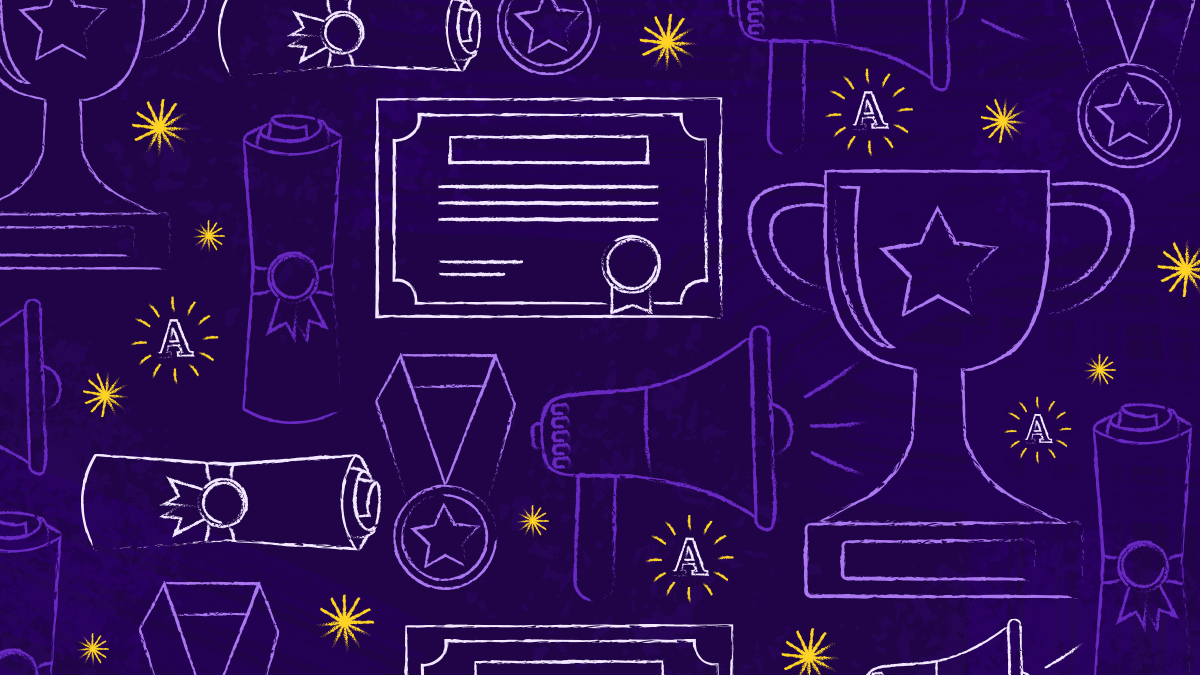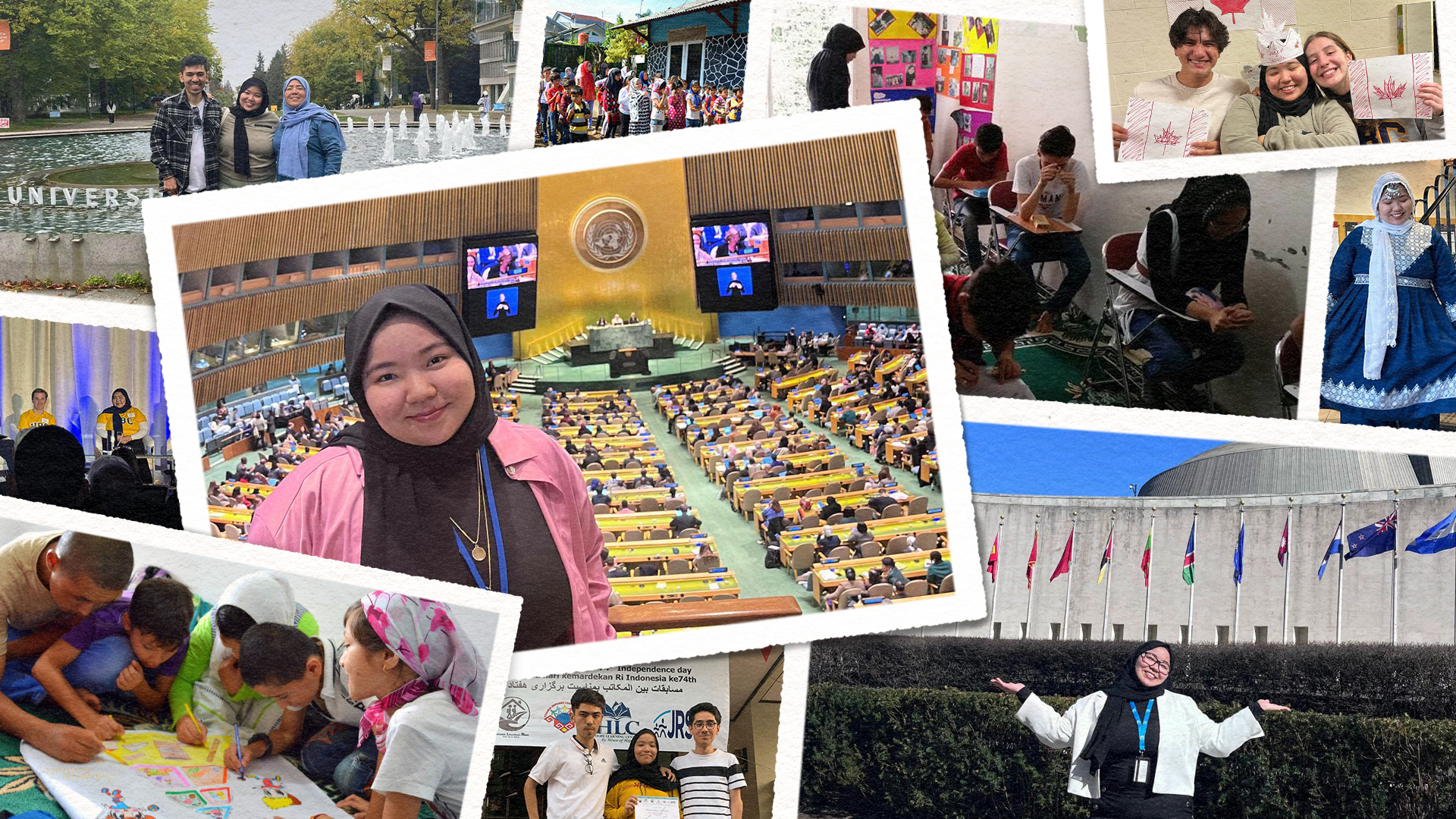

Amid the global refugee crisis, stories like Muhaddisa Sarwari’s offer both hope and a human face to a community too often reduced to statistics. A second-year UBC Political Science student and Loran Scholar, Muhaddisa brings lived experience of displacement, resilience, and the transformative power of education. Her journey—from statelessness as a Hazara* refugee to scholarship and advocacy—reflects the strength of refugee and immigrant communities who create opportunity where none exist.
“Every single person in this world could have ended up a refugee. It’s just some of us were unlucky to be born in a place that isn’t safe for us,” she reflects. “Oftentimes, people see refugees as numbers in headlines and news articles. They kind of forget that these people have unique identities and goals. They are people just like you, and it’s not fair for people to see them as a monolithic identity…I feel like what’s missing is that act of humanization.”
Originally from Afghanistan, Muhaddisa and her family fled escalating violence, living in Pakistan and Iran before settling as UNHCR asylum seekers in Indonesia in 2015. While Indonesia offered safety, it denied refugees access to education, employment, and other basic rights. At age 12, she watched local children walk to school while she remained behind. “All I wanted was to be just another kid with a backpack,” she recalls.
In response, her older brother Abdullah, alongside other community members, founded a makeshift Refugee Learning Center—a rented home turned into a school and extracurricular space staffed by volunteers. From ages 10 to 14, it was her only access to education. Still, she credits the experience with shaping her resilience and worldview. “When you take something away from someone, they want it even more,” she reflects.
Since arriving in a snow-capped Vancouver five years ago, Muhaddisa has continued to forge a powerful path—from receiving the prestigious Loran scholarship to speaking at TEDxSurrey, and representing the voices of women and girls in Afghanistan at the United Nations 68th Commission on the Status of Women. Today, she’s charting her way through UBC and planning to become a lawyer, all while co-founding a project, Parastoo, with Abdullah to give back to the refugee community that raised her, through providing education about refugee rights and resources to newcomers and other displaced individuals.
*The Hazaras are an ethnic group from central Afghanistan, mainly the Hazarajat region. They have distinct Central Asian features and speak Hazaragi, a Farsi dialect. Their culture is shaped by mountain life, with rich storytelling, music, and craftsmanship traditions.
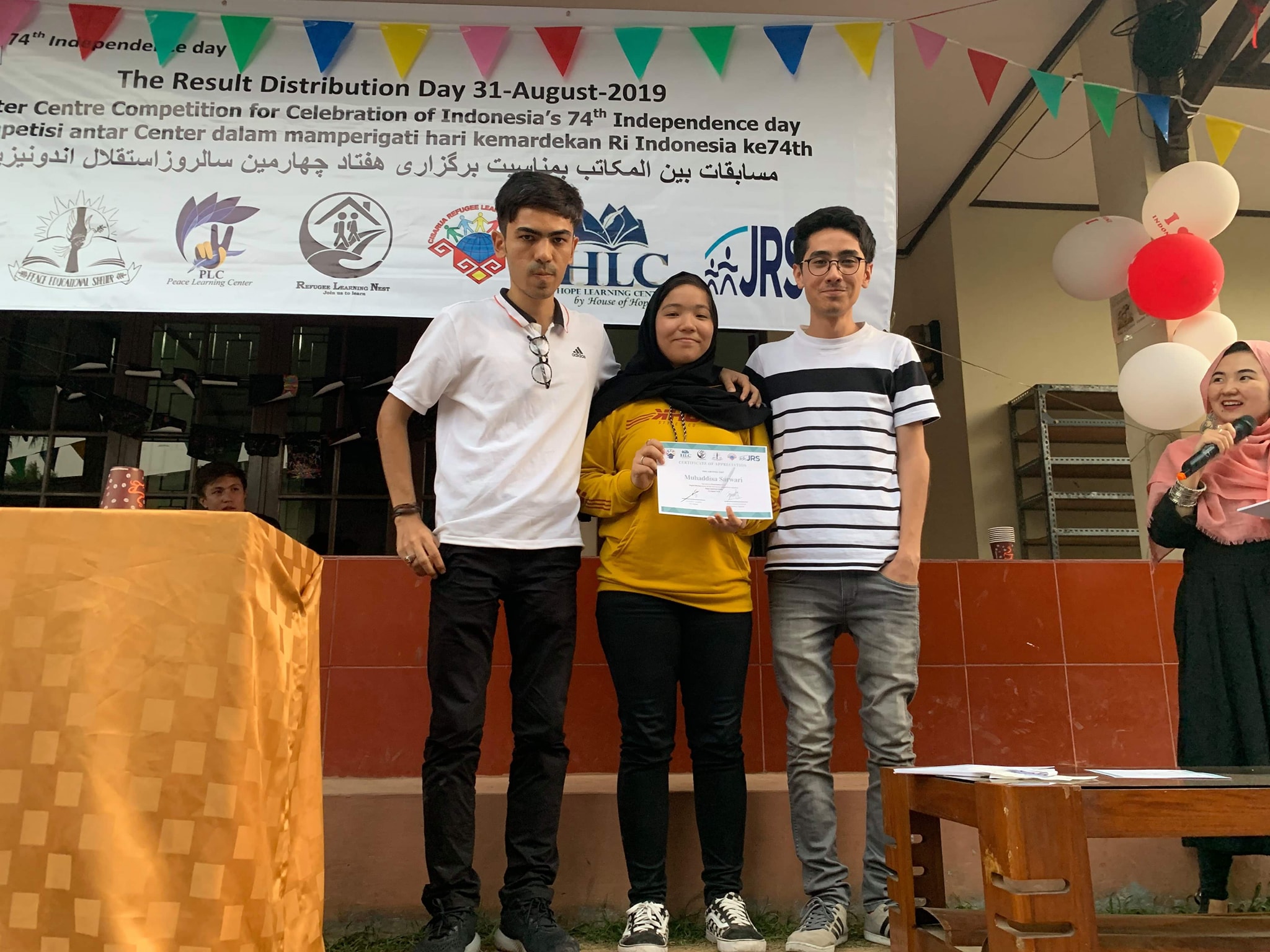
Muhaddisa and her siblings
Muhaddisa receives a certificate alongside her brothers at the Refugee Learning Center in Indonesia. Photo provided by Muhaddisa.
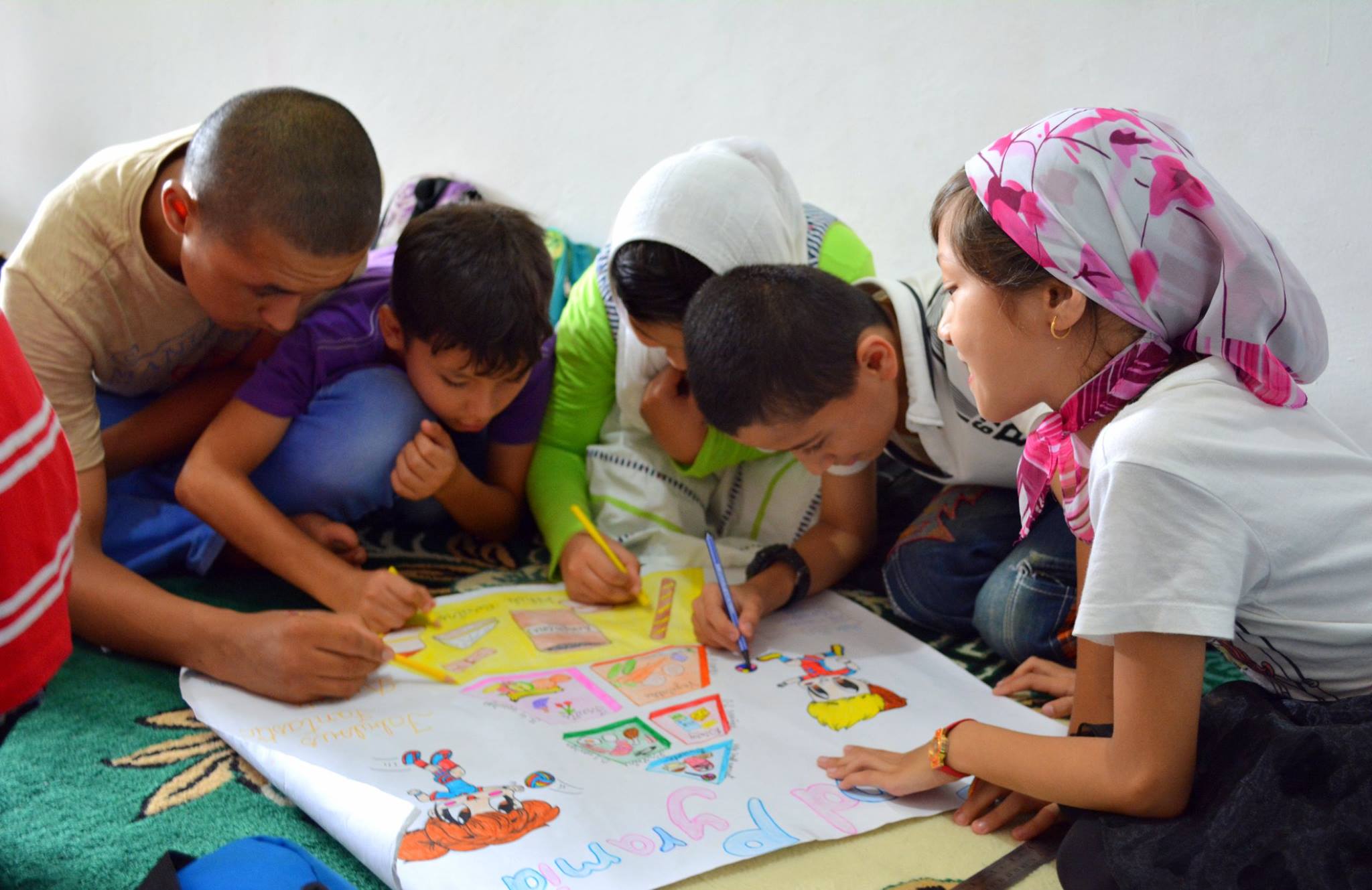
Refugee Learning Centre students
Students of varying ages creating art in the Refugee Learning Center. Photo provided by Muhaddisa.
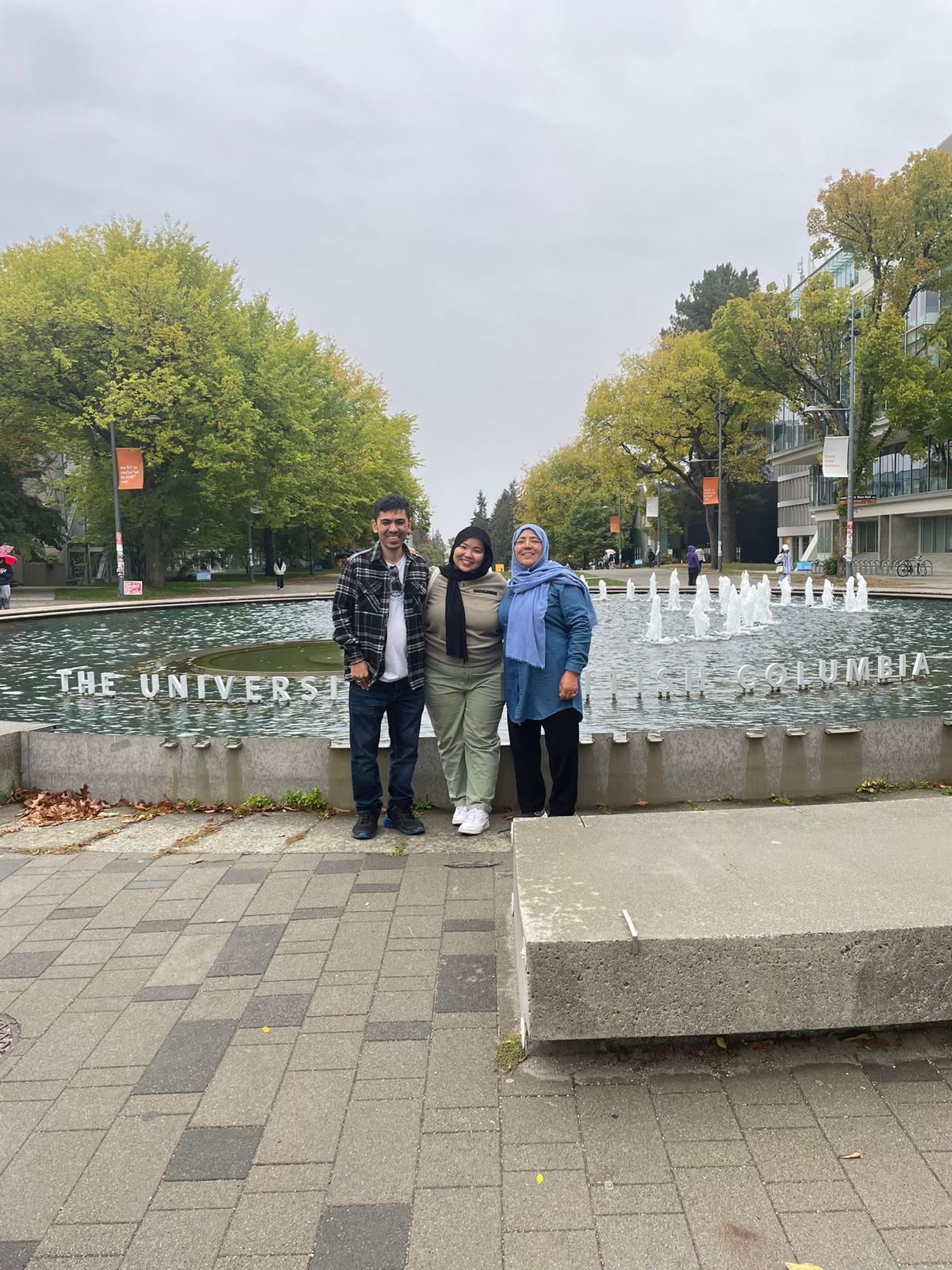
Muhaddisa at UBC
Muhaddisa, her brother, and mom smile proudly in front of the UBC fountain along Main Mall. Photo provided by Muhaddisa.
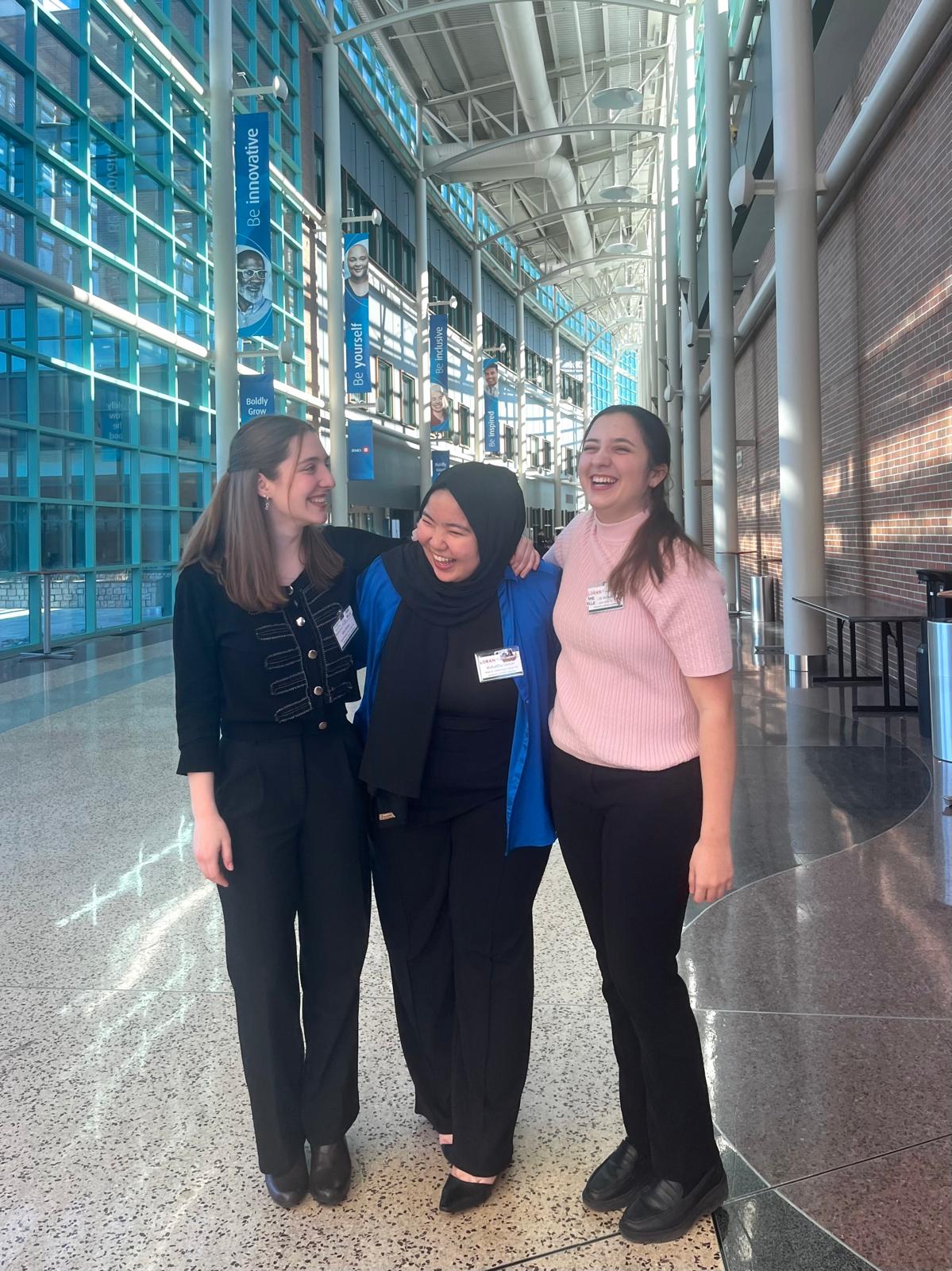
Muhaddisa and friends
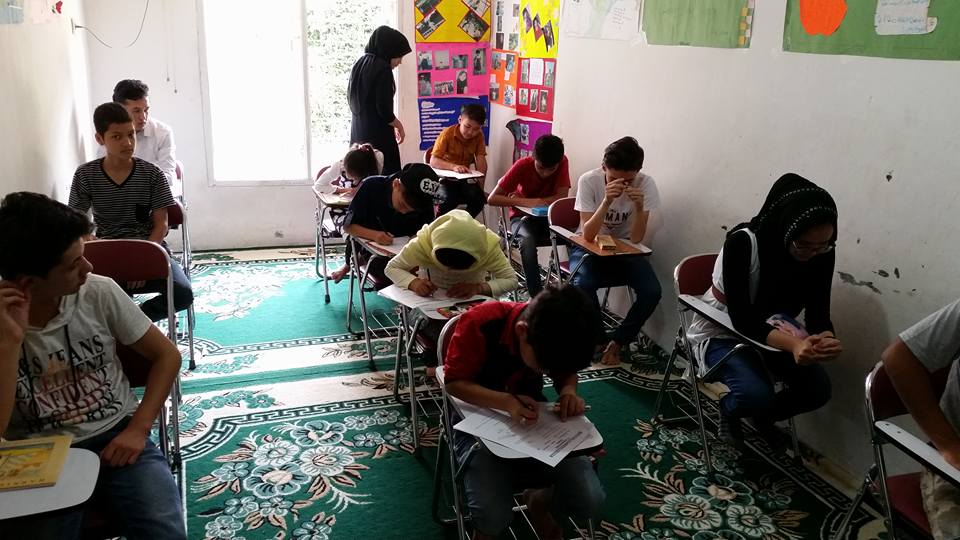
Refugee Learning Center classroom
Students studying in a Refugee Learning Center makeshift classroom. Photo provided by Muhaddisa.
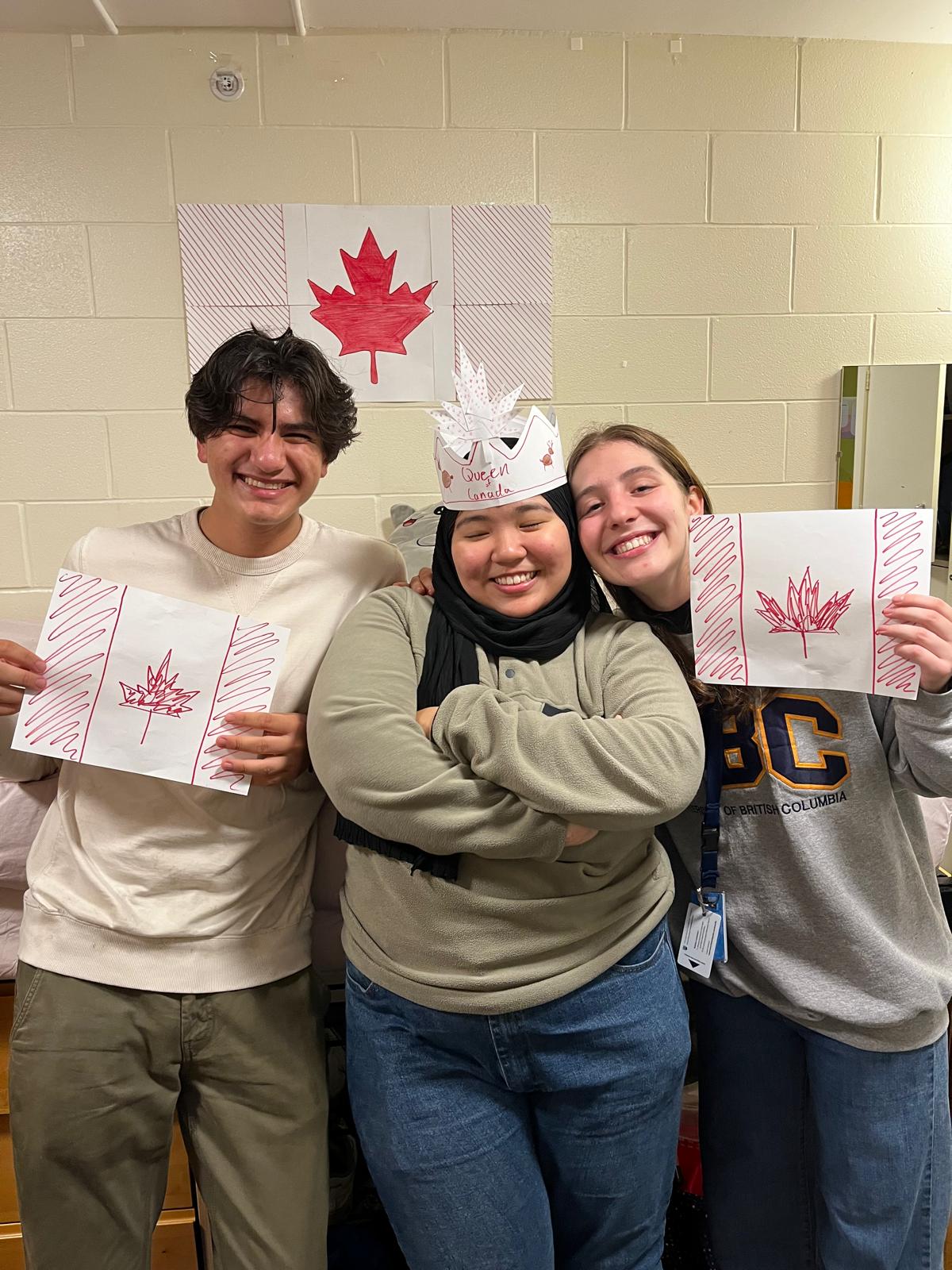
Celebrating citizenship
Muhaddisa and her friends from UBC celebrate her becoming a Canadian citizen
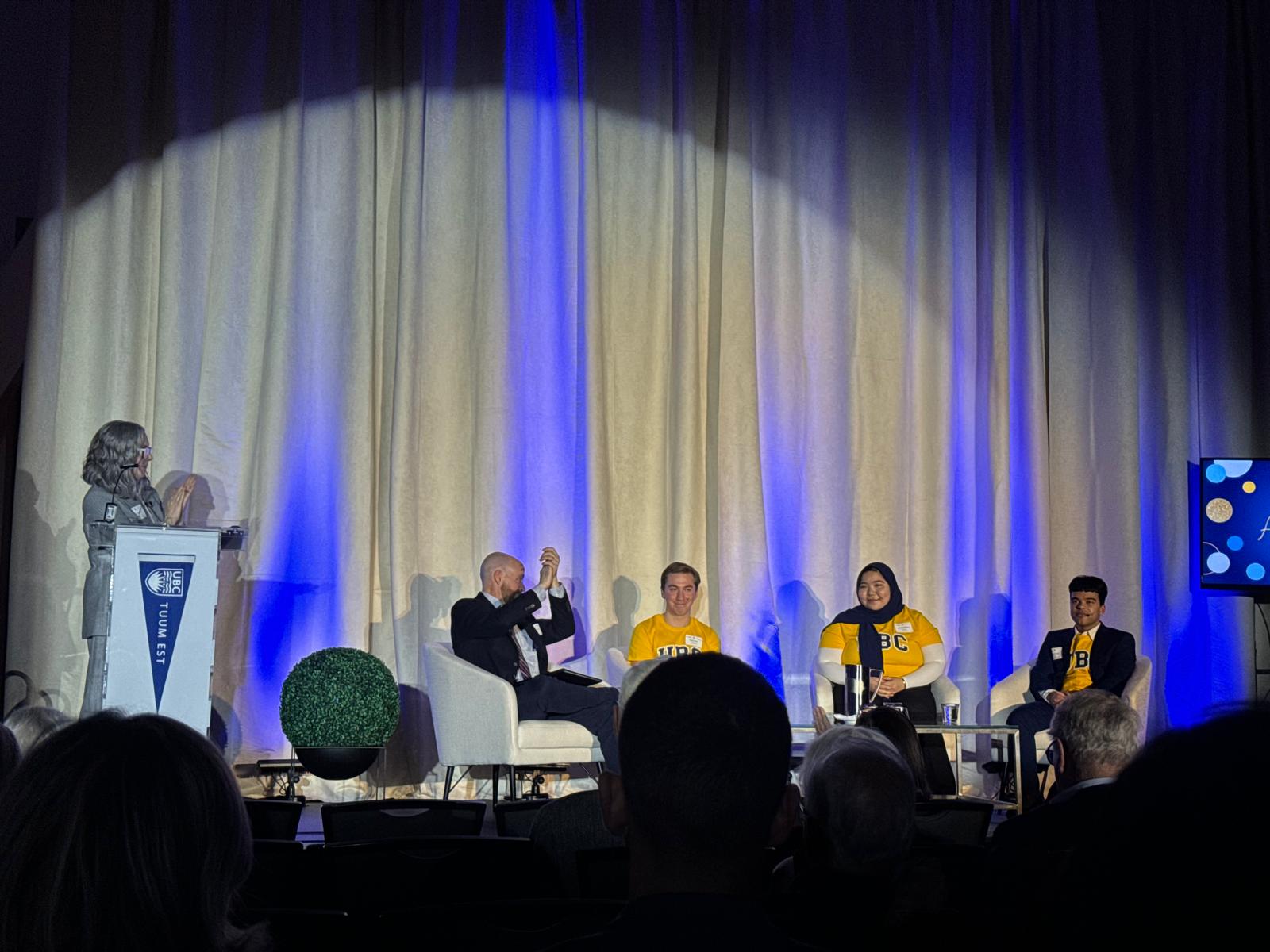
Muhaddisa DAE ambassador
Muhaddisa was part of a panel representing the perspective of scholars at a Development, Alumni, and Engagement event. Photo provided by Muhaddisa.
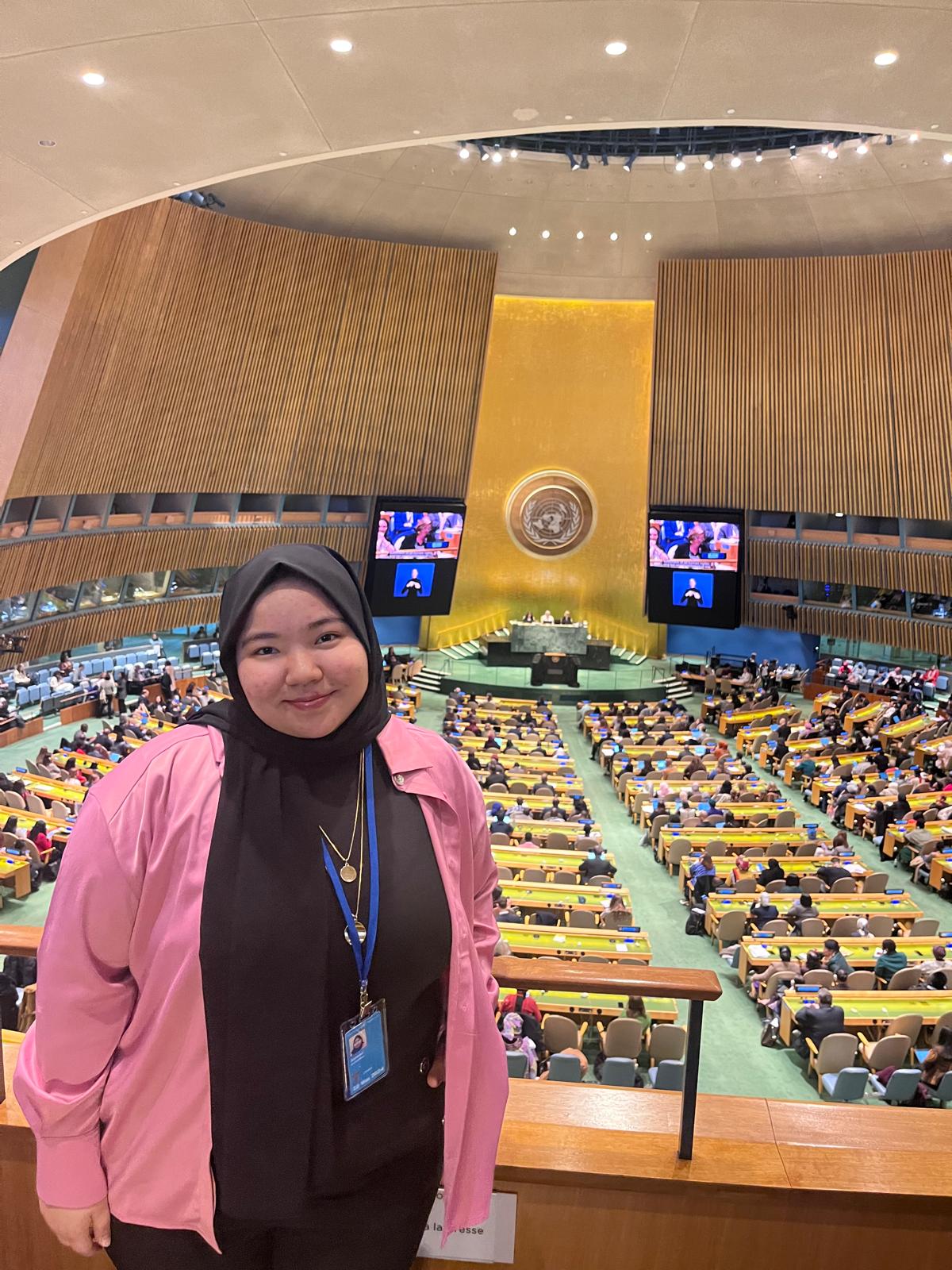
United Nations High Commissioner for Refugees
Muhaddisa was invited to be a youth delegate at the UNHCR to discuss women and youth rights in Afghanistan. Photo provided by Muhaddisa.
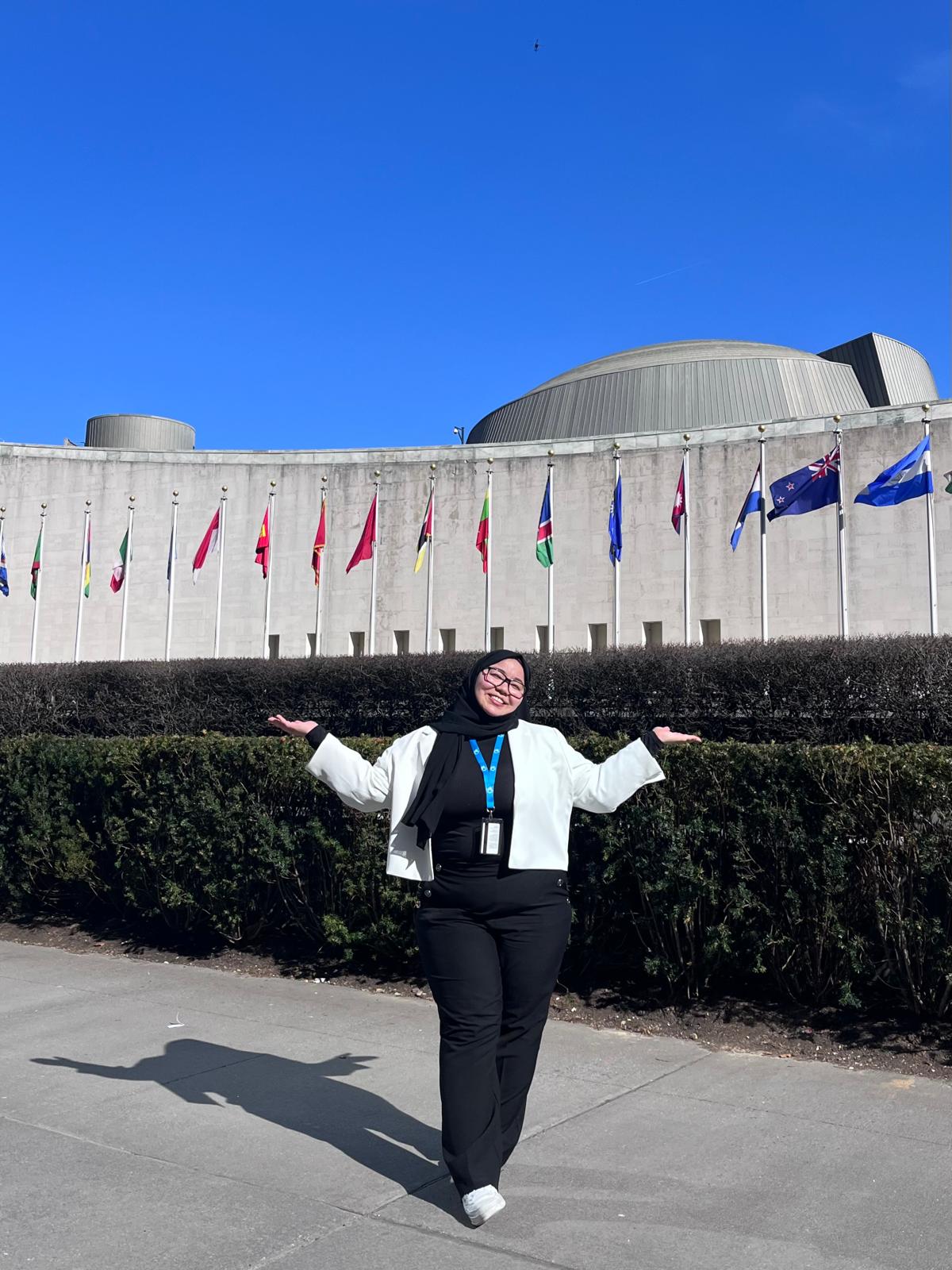
Muhaddisa at UNHCR
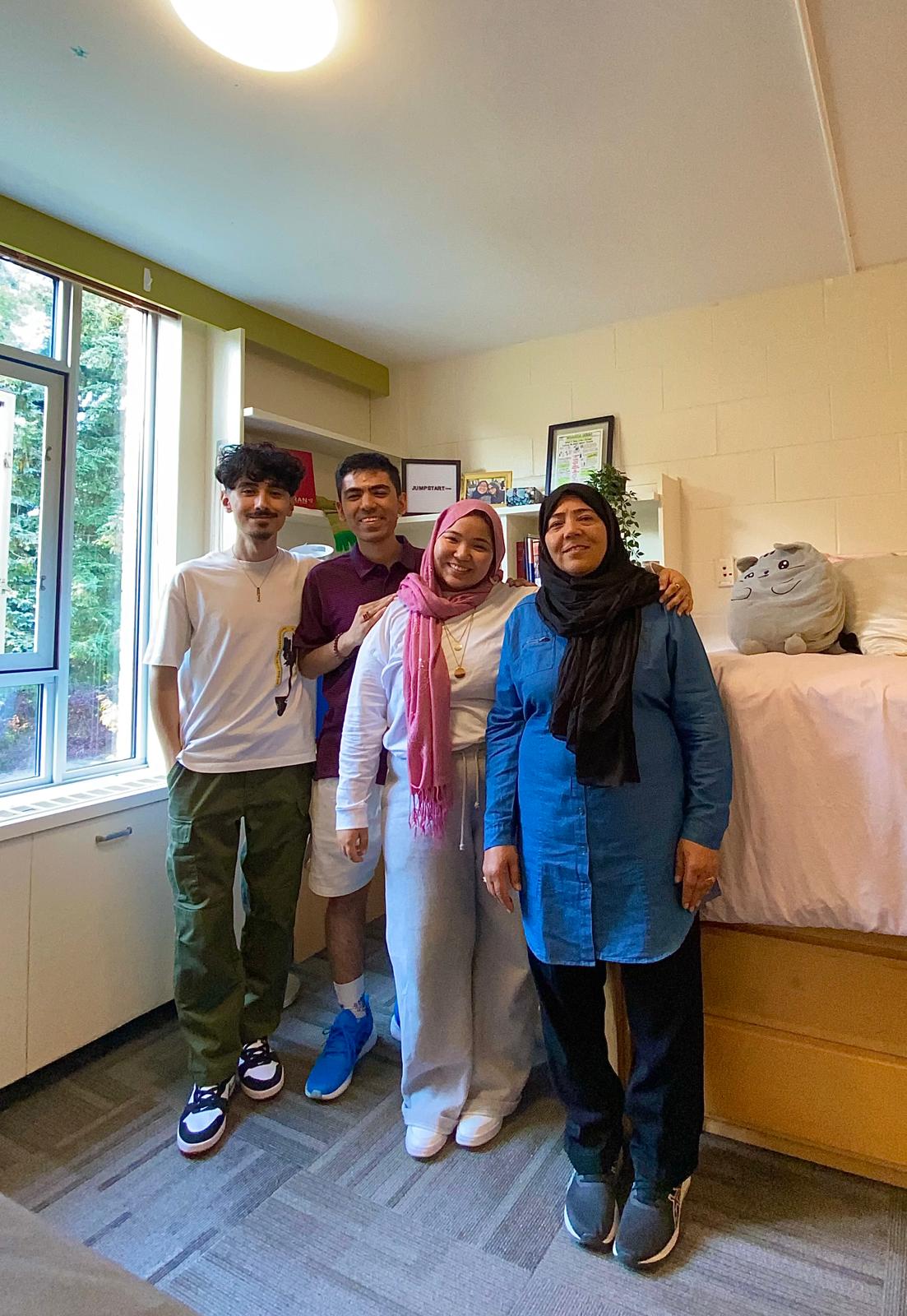
Sarwari family
Muhaddisa's mom and brothers visit her dormitory.

Screen Shot 2025-05-05 at 11.05.38 AM
Can you share some moments from your journey that led you to where you are now?
My family was one of the few lucky people who were able to stay as a family and get resettled in a third country, British Columbia, Canada. As you can imagine, it was so exciting! In fact, the whole culture in the Refugee Learning Centre was that every single time someone got resettled to a third country and they got their tickets, the whole school would get together like an assembly. We would call up the student and the family in front of the whole school, and they’ll get a certificate and give a little farewell. That wouldn’t happen often, because very few people even got to leave.
It’s bittersweet because you’re sitting down knowing that there is uncertainty in your future, but you are so proud and excited for the person you sat next to in class for years. They’re finally able to go and leave, and achieve their dreams. So that was really special. I thought I’d be very, very excited to go, but honestly, I was very sad. It was so emotional because this place wasn’t just a school, it’s an institution that I would come back home to. It was very intertwined in my daily life and intertwined in my identity as a refugee. I didn’t have access to education, so the fact and the act of showing up to school every day were extremely special to me, and it meant so much more to my entire identity as a refugee from Afghanistan.
“Resilience means acknowledging and accepting where you come from, who you are, and refusing to let the situation that you were born into define you. Have that fire in you to keep going and make the most of whatever you were given.”
What has your experience been like navigating UBC as a refugee student?
It’s a very important decision as a young person to choose a university that you want to go into, because you’ll be spending the next four or more years of very core developmental years for you as a young adult. For someone like me from Afghanistan who has experienced a lot of discrimination and assumptions on my identity, it was super important for me to surround myself in an environment where I felt safe, I felt welcome and I felt understood. It gave me comfort to know that if I were to truly live inside the UBC community, I would be able to find my people. That’s one of the bigger things that drew me to UBC. I really wanted some place that was accepting, welcoming, and inclusive of people like me, and that’s exactly what UBC gave me.
I think one of my core values that always keeps me going is the fact that education, for a lot of people in this part of the world, is kind of like a given; it’s a right, a box to tick off a checklist. For someone like me, a girl from Afghanistan, education is an act of resilience, and it’s an act of rebellion, almost. I come from a place where education is, unfortunately, not a right, and it’s not something that’s accessible to girls and women.
And so for me, what’s important is acknowledging that fact and knowing that every single day that I get to do such mundane things—like show up to my lecture and do my test and have discussions with my classmates—is the biggest privilege that you could bestow to any girl from Afghanistan. To be able to go to a school that provides me with all the amenities and resources that fit my needs, but also allows me to grow exponentially, and explore a whole new world of education and knowledge that I would have never had access to otherwise.
What made you decide to take up Political Science?
What drew me to Political Science, specifically, is that I come from a country that’s notorious for overstepping human rights and women’s rights. I grew up watching the news—and admittedly maybe a little too young to be watching the news—and honestly, I think that’s one of the things that fueled my passion for wanting to understand politics and wanting to understand government; especially international politics because I come from a [war torn] country that’s from a very different part of the world, and now I get to live on the complete flip side of that in a first world, very privileged country.
These two different dynamics diffuse my motivation of wanting to study political science and understand that world. Oftentimes, in the news or within our schools and courses, we get a detached idea and knowledge; we study people through a microscope from our lens, and based on a very Western perspective. Personally, being someone from Central Asia, from Afghanistan, and who has lived beside [refugee] people just like myself, I have that added perspective of a very real view on how they live and how these governments and societies function. Having that personal knowledge and background contrasted with the education that I have here gives me a very holistic understanding. I’m glad we get so much space to express ourselves and share our ideas. Doing that is special to me because I get to engage with this technical and statistical knowledge with my personal experience and background.
“Every day I wake up to the fact that I am living someone's dream. And in fact, I'm living my own dream from a couple of years ago. Every single day that I get to do things that are understandably boring for any other student is me living my dream actively.”
Is there a specific initiative that is meaningful to you?
Parastoo is a project that my older brother, Abdullah, and I are working on. He was actually one of the co-founders of the refugee school. It was an inspiration for me when I came to Canada to also have that same sense of community service and giving back. When I came to Canada as a refugee, there were so many different gaps that I felt like weren’t filled, so I had this strong passion and drive to give these other newcomers and refugees what I wished I could have had when I first came here.
We’re working on this project to finally give back to the community that’s done so much for us. It’s exciting and weird to know that we’re finally in the position where we can give back by using the knowledge and resources we have to share them with people to make their lives, hopefully, a little bit easier than ours was in the beginning. Now, as a student at UBC, I’m able to give back through our fundraiser, aimed to raise money to keep the Refugee Learning Center alive for another year.
What would you tell your grade 10 self, back when you were first navigating displacement?
Don’t have to force yourself to fit into a box that was never meant for you, and that you should always put yourself inside rooms and inside environments that feel welcoming towards you. One thing that I would say to all refugee students is that it’s not fair to be so harsh on yourself and not give yourself the space to understand and acknowledge where you come from and the hardship that you’ve been through. There are so many refugee kids who are like 12 years old who, in those 12 years of their lives, have gone through more hardship and more heartbreak than adults have in their entire lifetimes.
This is something I wish I had been told when I was just new to Canada: Never sell yourself short. Like my brother, Abdullah, always tells me: never reject yourself before you get rejected by somebody else. That's something I struggled with; always feeling like I'm never qualified enough, good enough, and not the best person to do this. Be kinder to yourself and be proud of how far you've come and the challenges that you faced. All the hardships that you faced don't make you any smaller or any less deserving of having good things. Those are the things that lift you up, and those are the things that empower you. If you don't come from the most privileged place, that's not something to be ashamed of. In fact, you should take pride in your identity, who you are, where you come from, and always stay connected to your roots. Never forget the people who helped you achieve your goals, and never forget the place that you came from.
What advice would you give to youth who want to explore advocacy?
Stay open-minded and never be afraid to engage with people from all over the world who have different perspectives. It can become dangerous for you to only listen to people who have the same exact beliefs as you, who have the same mindset as you. Even though a lot of times it may seem daunting or unproductive, it is important for a young person’s mind to be able to engage with different people, even with people who completely disagree with you. It’s important for us to hear those perspectives, engage with them critically, and give ourselves the opportunity to explain and implement our knowledge, perspective, and worldview.
If you feel like you see injustice happening, if you feel like you have a passion for wanting to advocate and spread awareness, use that passion and don’t be afraid of judgment or critique. Open yourself up to receiving those critiques. If you see something that you feel like you want to speak on, don’t be afraid and don’t shut yourself out. Be brave enough to point something out when you see it and call people out, because I feel like that’s the kind of person we need in this world.
Please note that edits have been made to this Q&A for clarity and tone.
